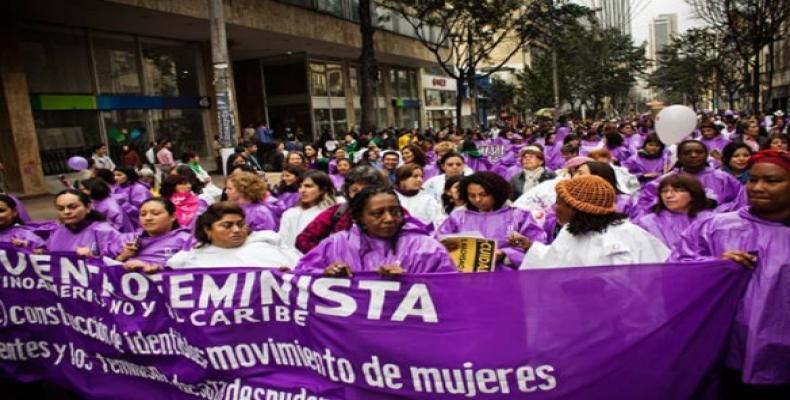Lima, July 11 (RHC-teleSUR), -- In a landmark legal effort to prosecute systemic wartime sexual violence, fourteen former military officers are being tried in a Peruvian court for the rape of indigenous women during the country's two-decades-long “dirty war” between government forces and armed guerrilla factions in which tens of thousands were killed and forcibly disappeared.
Peru's top law-enforcement official, Attorney Genera Pablo Sanchez, has moved for the case to be tried as a crime against humanity, a longstanding legal category that has historically been used to prosecute genocide, enslavement, political and religious persecution, forced removals and other acts of organised violence carried out against civilian populations. The campaign of sexual abuse committed by military officials between 1984 and 1995 in the largely Indigenous region of Huancavelica represents only the second time that rape has been prosecuted as a crime against humanity at the national level, according to legal experts.
Seven of 14 accused officers appeared in court Friday for a preliminary hearing to begin what is expected to be a lengthy trial. Each of the men faces betwen eight and 20 years in jail if convicted, according to local media reports.
More than a dozen women from the towns of Manta and Vilca have come forward to accuse the officers of sexual assaults in which the soldiers typically got the women drunk, then took the dazed women back to their rooms where they were attacked physically and sexually. Fearing retribution, the women have maintained their silence about the attacks for nearly 30 years.
Human rights officials believe the number of women assaulted during Peru's sectarian violence could be as many as 5,000.
The next hearing is scheduled to take place on Friday, when the court is set to decide whether the case will be heard publicly or in private. The trial is expected to take up to two years.
Peru’s Truth and Reconciliation Commission, launched in 2001 after the fall of Alberto Fujimori’s dictatorship, found that sexual violence against women was a consistent military practice in Manta and Vilca between 1984 and 1995.
Military bases were set up in Huancavelica in 1984 after the notorious armed rebel group, the Shining Path---which was also responsible for widespread human rights abuses---expanded its presence in the region in the early 1980’s. The bases were active until 1998 in the final years of the Fujimori dictatorship, infamous for its “war on terror” counterinsurgency strategy that criminalized and victimized dozens of rural civilians accused of collaborating with guerrilla groups.
According to the Truth and Reconciliation Commission, 20 years of armed struggle between the government and the Shining Path and another Maoist rebel group, the Tupac Amaru Revolutionary Movement, claimed nearly 70,000 lives and left over 4,000 mass graves. The commission found that the Shining Path is responsible for nearly more than 35,000 of those victims, while the army was culpable in moer than 20,000 deaths.
The most rampant and brutal human rights abuses were committed under Fujimori, whose authoritarian presidency morphed into a dictatorship halfway through his ten-year rule. Systemic rape by military forces was just one form of violence suffered by the country’s Indigenous women, who also faced a widespread state campaign of forced sterilization. Nearly 270,000 mostly Indigenous, rural women were forcibly sterilized between 1995 and 2000.
Peru’s sexual abuse case follows on the heels of a landmark rape and sexual slavery trial in Guatemala earlier this year that marked the first time sexual slavery charges were prosecuted at the national level, in the country where the crimes were committed. Two former military officials were sentenced to a total of 360 years in jail for crimes against humanity, including forced disappearances and systemic rape.
Experts argue that the Guatemalan case, known as Sepur Zarco, could set a new precedent for prosecuting sexual violence as a tool for terrorizing civilian populations. Sexual abuse of both women and men has been allaged in a wide range of violent clashes, from the Jim Crow era in the United States, to Russia's invasion of Germany in World War 2, to the rape and torture of Congolese Women in that country's long-running sectarian clashes, to that of Palestinian disidents dissidents by Israeli soldiers.
Human rights defenders in Peru have called for a “speedy and transparent” trial.


